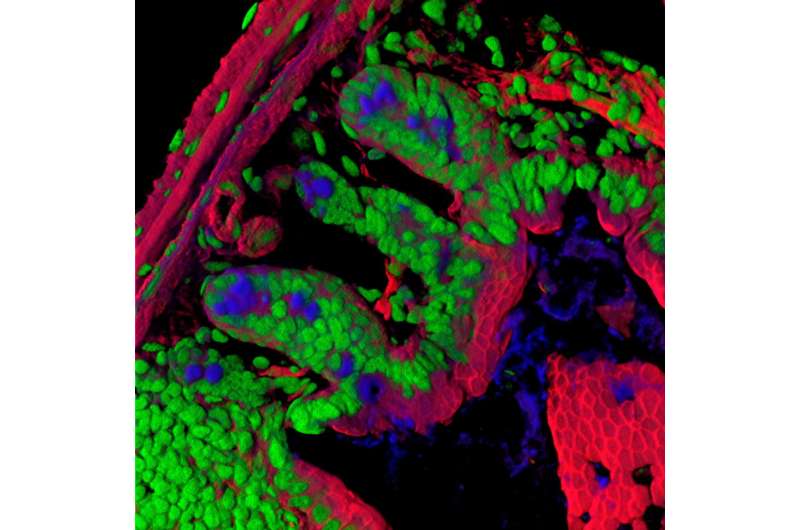Study of bile acids links individual's genetics and microbial gut community

In a new study published 29th August in PLOS Genetics, Federico Rey of the University of Wisconsin—Madison and colleagues identified genetic variants in mice that impact the levels of different bile acids as well as the size of a specific population of microbes in the gut.
The complex assortment of microbes that live in the intestines are the result of poorly understood interactions between a person's individual genetics and environmental influences like diet and drugs. One factor that links these two are bile acids, which the body produces to help absorb vitamins and fat in the small intestine, and which encourage some bacterial populations and suppress others. Additionally, bacteria metabolize bile acids to create secondary bile acids, which the body also uses for digestion. To identify genetic variants that affect bile acid levels and the microbial community in the gut, researchers profiled a population of 400 genetically diverse mice. The analysis pointed to a gene that codes for the ileal bile acid transporter, a protein that takes up bile acids from the final section of the small intestine for recycling back to the liver. Genetic variants in this transporter not only affect the abundance of bacterial species belonging to a group called Turicibacter but also alter levels of a bile metabolite that the researchers detected in the blood.
This study reveals novel interactions between Turicibacter species and bile acids and is the first to use genetic mapping to integrate the community of microbes living in the gut with the profile of bile acid metabolites. "We are interested in identifying the microbial functions that are under host genetic control," said author Federico Rey, "and future studies will integrate additional metabolomic, metagenomic and transcriptional data derived from the host intestine."
More broadly, the work shows the power of systems genetics to identify novel interactions between microbes and metabolites in the intestine. It also provides multiple leads on host-microbe-metabolite interactions that with additional study can help dissect the complex factors that shape microbial communities in the gut.
More information: Julia H. Kemis et al, Genetic determinants of gut microbiota composition and bile acid profiles in mice, PLOS Genetics (2019). DOI: 10.1371/journal.pgen.1008073



















